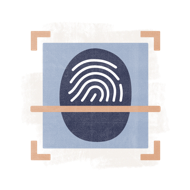It took a while for Sheryl (not her real name) to realize the thousands of dollars she thought she was spending to help save her business was instead going straight into the pockets of a scammer. Disbelief turned to outrage and then to desperation. How could she get her money back?
Sheryl remembered that she had identity theft insurance, and reached out to her provider in hopes that it would make her whole. She soon learned that identity theft and fraud are two different things, and she would not likely recover the money she had lost.
Identity theft is a type of fraud, but not all fraud is identity theft. Knowing the difference is important.
What is ID Theft?
ID theft typically involves someone using your personal information to commit fraud. They may try to open new credit accounts in your name, for example, or pretend to be you in order to try to collect a fraudulent tax refund. The key here is that the crook steals your “identity” in the form of your personal information in order to commit the fraud. Some common types of fraud are often confused with identity theft but they are different. They include…
Credit Card Fraud
Most credit card fraud involves a crook getting ahold of someone else’s credit card information and using it to make purchases. Credit card fraud is not considered to be identity theft, and therefore would not be covered under a typical identity theft insurance policy.
However, you will often be made whole in the case of credit card fraud. Federal law, specifically the Truth in Lending Act, limits liability for unauthorized credit card purchases to $50. If the card itself is not presented for the transaction (say, for an online purchase) liability for fraudulent use is $0. Both small business and consumer credit (and charge) cards are covered.
Here’s an important caveat, though. If you give a card to an employee, family member or someone else to make purchases, that authorization carries forward to all purchases they make. In other words, if they go on a spending spree and make purchases you didn’t intend for them to make, you will likely still be responsible for those charges because you gave them authorization to use the card. You’ll have to pay the bill and try to collect from them.
If, however, a crook is successful in opening a credit card in your name and then racks up charges on that account, identity theft insurance would likely help you dispute that account so you aren’t held responsible for the account balance.
Financial Fraud
There are many flavors to financial fraud; too many to count. But a few that commonly target small business owners:
- A company promises you a loan, but you must make a hefty upfront payment to cover “insurance” or the “first few monthly payments.” You wire the so-called lender the required money — mail it a prepaid card as instructed — but the loan never materializes.
- A firm sends your company an invoice that looks legitimate and your employee — or you — pay it, only to later determine it was fake.
- A business overpays for goods or services from your firm, then insists the difference be wired to them immediately. After you do, you discover the check for them bounced and you are unable to recover the funds wired to them.
- You’re called and told you owe back taxes and if you don’t pay them immediately you will be arrested. The caller insists those tax payments be made by mailing a prepaid card you can purchase at a local retailer. Of course, it’s a complete scam: the IRS always contacts taxpayers by mail, not telephone.
These are all examples of financial fraud that do not involve identity theft. If you fall victim to one of these schemes, you will not likely recover the money that has been scammed from you or your business.
ID Theft Insurance Benefits
Does this mean it’s time to ditch ID theft insurance? Not so fast. If you are a victim, you will likely appreciate the benefits this type of coverage provides. While individual policies and details vary, policies often include:
- Guidance and help as you report and resolve your id theft case
- Help replacing identity documents
- Reimbursement for out-of-pocket expenses (notary fees, certified mail)
- Lost wages for time off work resolving the proble
- Credit reports
- Legal defense fees
Note that some policies have deductibles or cap benefits. In addition, service levels and coverage vary. Identity theft coverage does not provide credit repair, though you will likely receive guidance on how to dispute fraudulent items on your credit reports.
The most important thing to remember here is that no one can fully protect you from a stolen identity. Even a credit freeze can’t lock down your identity entirely. So make sure that you monitor your credit and financial accounts. Prevention is the best protection from ID theft, but if you are a victim, having identity theft benefits can provide assistance and financial benefits as you clean up the mess.
This article was originally written on October 27, 2017.


Have at it! We'd love to hear from you and encourage a lively discussion among our users. Please help us keep our site clean and protect yourself. Refrain from posting overtly promotional content, and avoid disclosing personal information such as bank account or phone numbers.
Reviews Disclosure: The responses below are not provided or commissioned by the credit card, financing and service companies that appear on this site. Responses have not been reviewed, approved or otherwise endorsed by the credit card, financing and service companies and it is not their responsibility to ensure all posts and/or questions are answered.